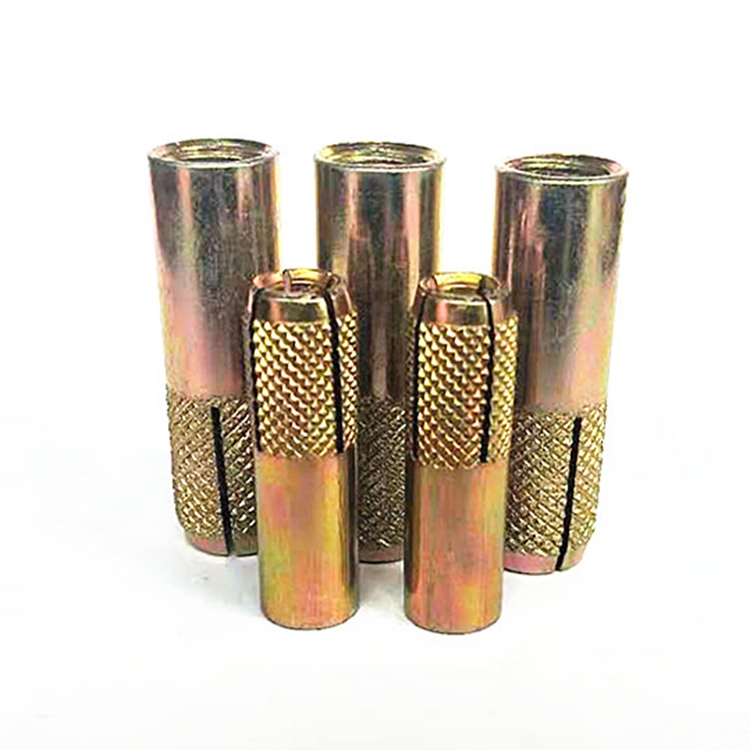175-47 130mm stud bolt manufacturer
Oct . 11, 2024 19:02 Back to list
175-47 130mm stud bolt manufacturer
The Importance of 175-47% 20130mm Stud Bolt Manufacturers
In the industrial landscape, the choice of fasteners plays a critical role in ensuring the integrity and safety of structures. Among various types of fasteners, stud bolts are crucial components widely used in construction, manufacturing, and structural engineering. This article delves into the importance of manufacturers producing high-quality 175-47% 20130mm stud bolts, emphasizing their significance in various applications.
Understanding Stud Bolts
Stud bolts are threaded rods that are utilized in conjunction with nuts to secure two or more components together. Unlike standard bolts, which have a head on one end, stud bolts are threaded on both ends, allowing them to be inserted into a pre-tapped hole or used with nuts on either side. This design provides a compact and efficient solution for fastening, particularly in environments subject to high stress and loads.
Key Specifications
The specification “175-47% 20130mm” indicates specific characteristics essential for different applications. The numbers reflect the dimensions and material properties that define the performance of the stud bolts.
- 175-47% might indicate specific tensile strength requirements, ensuring the bolts can withstand the necessary loads without deforming or breaking. - 20130mm points to the length of the stud bolts, which is critical for fitting them into designed assemblies correctly. The precise length allows engineers and builders to choose the appropriate fasteners to maintain safety and durability.
The Manufacturing Process
The manufacture of high-quality stud bolts involves several stages to ensure they meet stringent standards. Raw materials, typically high-quality steel or specialized alloys, are selected based on their mechanical properties and resistance to environmental factors.
175-47 130mm stud bolt manufacturer

1. Forging and Machining The raw materials undergo forging to achieve the desired shape. This process enhances the structural integrity of the bolts by aligning the grain structure of the metal. 2. Threading The bolts are threaded using CNC (Computer Numerical Control) machines, which allow for precision and uniformity, essential for ensuring that the nuts fit securely.
3. Heat Treatment This step involves heating and cooling processes that enhance the strength and hardness of the bolt, further ensuring durability under stress.
4. Surface Treatment To prevent corrosion and improve durability, surface treatments like galvanization or coating are applied. This is particularly important for applications in harsh environments.
Choosing the Right Manufacturer
Selecting the right manufacturer for 175-47% 20130mm stud bolts is crucial for any project. Factors to consider include
- Quality Assurance Look for manufacturers that adhere to international standards, such as ISO certifications, which guarantee quality throughout the manufacturing process. - Experience Established manufacturers with a proven track record in producing fasteners for specific industries can be more reliable.
- Customization Some projects may require specific modifications to standard fasteners. Choose a manufacturer that can provide custom solutions based on unique requests.
Conclusion
In conclusion, the role of 175-47% 20130mm stud bolt manufacturers is fundamental to the success of various engineering and construction projects. By providing high-quality, durable fasteners, these manufacturers ensure safety, reliability, and efficiency in structural integrity. As industries continue to evolve, the need for such specialized products becomes ever more critical, highlighting the importance of innovation and quality in fastener production.
Latest news
-
Durable Bolts for Lawn Mower Handle - Top Supplier & Manufacturer
NewsAug.22,2025
-
High-Quality Bolts for Lawn Mower Handle Supplier & Manufacturer
NewsAug.21,2025
-
Reliable Axle Nuts Supplier | High-Quality Automotive Parts
NewsAug.19,2025
-
Premium Wire Bolts Suppliers | Durable & Reliable Fasteners
NewsAug.18,2025
-
Leading Metric Wood Screw Companies & Manufacturers
NewsAug.17,2025
-
Top Wire Bolts Suppliers - Quality & Durable Fasteners
NewsAug.15,2025
